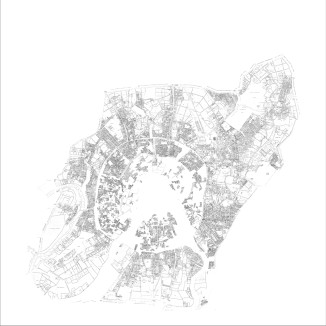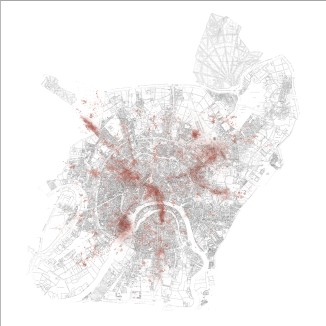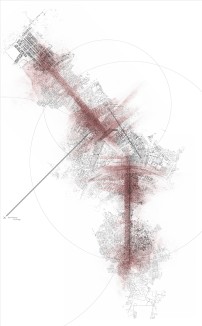October Revolution, 1917
This slideshow is part of: Master of Architecture II Fall 2013
Within the realm of the real, a unique genre of Russian and Soviet literature, the revolutionary novel, offers a telling and multi-faceted illustration of the 1917 Russian Revolution. While constructing a virtual catalog of the revolutionary events, three such novels are employed in order to inform the historical facts: The naked year by Boris Pilnyak (1922), The Badgers by Leonid Leonov (1924) and Doctor Zhivago by Boris Pasternak (1957). Several phases of the revolution emerge through them, facilitated in three distinctive urban spaces: the industrial, the governmental and the residential pole.
While tracing the path in motion, every event represents a time unit. Time, in this occasion, is articulated by spatial means: by points taken and territories overpowered. As the path threads its way from the outskirts of Moscow towards the Kremlin, it advances, retreats, stops or is halted, allowing for a temporal landscape of the events to be constructed. Reflecting the path’s thunderous accelerations, rendings, stopping points and gaps, it animates the urban fabric with its successive acts of becoming.












